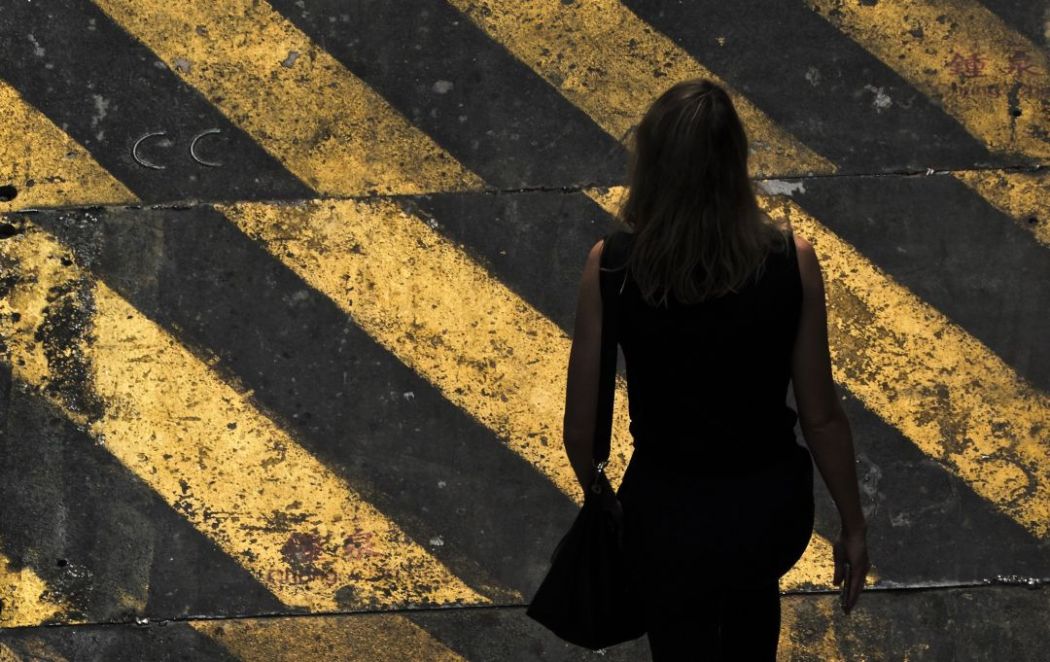Last weekend, an image of a bar-coaster kicked off an international tweet storm and an outpouring of #metoo stories shedding light on a toxic bar culture at one of the world’s most famous press clubs – the Foreign Correspondents’ Club.
‘Save the FCC’ the coasters read, adopting the insignia of Carlsberg. However, the coasters distributed at Hong Kong’s professional media club, weren’t in support of journalistic freedom of speech, or objecting to practices such as journalists being expelled or imprisoned across Asia.
Instead, a small group of FCC members produced the coasters to protest the club’s recently adopted anti-harassment policy. Furthermore, the anonymous group distributed their protest coasters at the FCC’s main bar, bought a domain name, created a website and started an anonymous petition to protest how the club’s anti-harassment policy impinges on their “freedom of speech”.
So the @fcchk has decided to put in place an anti-harassment policy. Most women who have decided not to spend much time at the bar know it was needed. Some of the harassment-happy (male) members however decided this is bad because “free speech” and are putting these coasters out: pic.twitter.com/qxqjXBSyXB
— Ilaria Maria Sala (@IlariaMariaSala) April 4, 2019
In 2019, at a time when journalists are being murdered, arrested and imprisoned for simply doing their jobs and reporting the truth, it is shocking and even reprehensible to equate a club-mandated policy designed to protect club members to a restriction on freedom of speech.
The MeToo movement which has shaken political, media, fashion and finance spheres internationally has barely made a dent in Hong Kong culture with only a few isolated cases gaining traction, such as hurdling champion Vera Lui Lai-yiu.
There is a serious, worrying and common delay in procedures for reporting harassment: RainLily, the first sexual violence crisis centre in Hong Kong, recently revealed that victims took an average of 1,389 days before contacting the organisation, and the longest delay was 58 years.
International Women’s Day highlighted how slowly we are moving towards workplace gender equality. According to the Women’s Foundation, 55% of women are in the workforce in Hong Kong, a lower figure than other Asian countries such as China, Japan and Singapore.

Hong Kong has an average gender pay gap of 22% and only one third of management is female. The situation can be attributed to entrenched gender biases, a lack of policies to support work-life balance and the traditional burden of child and elder care falling disproportionately on women’s shoulders.
Could it be time to adopt a more progressive and less conservative understanding of gender and sexuality?
Culturally, the patriarchy is still in business in Hong Kong: from advertising that continues to objectify and sexualise women’s bodies, to the acceptance and celebration of beauty pageantry. There is no mainstream feminist movement, and while culturally stigmas still exist around sex and sexuality, areas such as Wan Chai continue to celebrate a drinking culture established around the social acceptance of female prostitution.
Is it any surprise then that these attitudes are also reflected in the field of journalism? At the March 2019 FCC Journalism Conference, journalists Mary Hui and Kirstie Lu-Stout shared their experiences of receiving harassment both in the field and online.
With the introduction of an anti-harassment policy, the FCC is rightly taking steps to prevent and deal with harassment on its own doorstep, particularly the unacceptable behaviours which have become entrenched at its own bar.
When ex-FCC president and journalist Ilaria Maria Sala shared an image of the now infamous anti-anti-harassment coasters, Twitter erupted with members, female and male, sharing their experiences of harassment and intimidation at the FCC bar.

These testimonies came from a wide range of people including award-winning journalists who have endured the mansplaining of their field of expertise, male members overhearing colonialist, racist and sexist attitudes towards Asian women and numerous examples of sexual harassment.
Others say they veer well away from the bar to avoid the pernicious culture of harassment and some have refused to become members in light of the club’s ‘reputation’, which they feel has gone unchallenged.
The FCC policy was introduced to stem such acts of harassment and micro-aggression. Personally, I have endured unsolicited attention and harassment at the FCC bar including random men kissing me, whispering in my ear, proposing, shouting at me or refusing to leave me alone when asked to.
In several instances, I have had to rely on members of staff for protection. When I first joined the club about five years ago, it took close to 18 months to convince the club to take down a photo of two topless women from the walls of the bar. The photo seemed to represent some kind of nostalgia for some members, despite the image’s tenuous link to FCC relevancy, and for challenging its relevance I was called a ‘witch’ and a ‘raging feminist’.
Sexual harassment is about power, and the attitudes of the topless-photo defenders and the coaster-makers that it is not only acceptable to objectify and sexualise women but that somehow their freedom of speech to continue to do so should be paramount over club policy, shows how confident they feel in their power to continue to do so.
We need to address a prevalent victim-shaming attitude and a culture of silence. We need to confront prevalent, sexist and toxic beliefs not just in the club, but across media and in the city’s wider bar culture too. Let’s also work together to promote journalism’s power for good, and celebrate the powerful, positive and vital role that journalists play.
